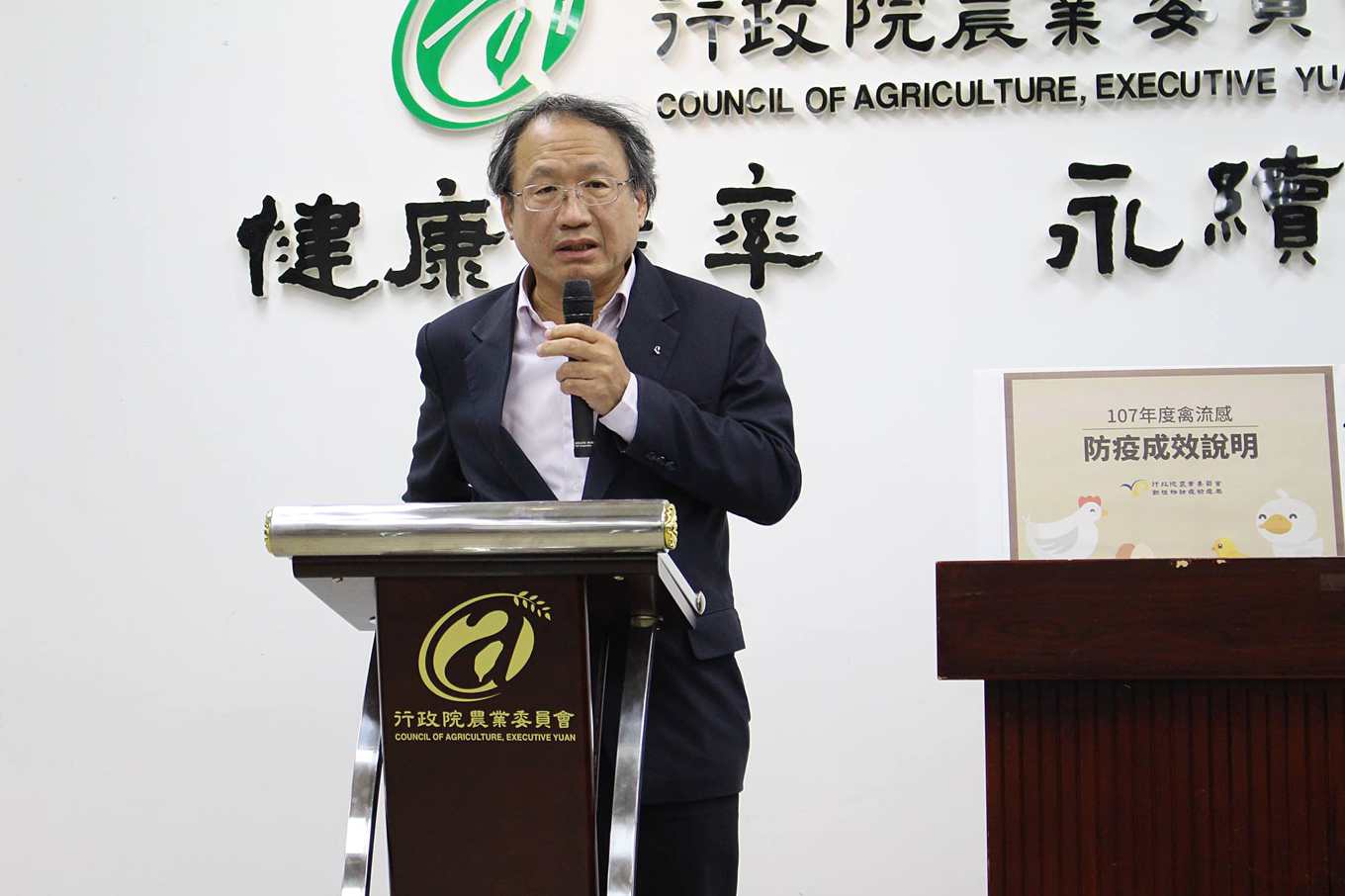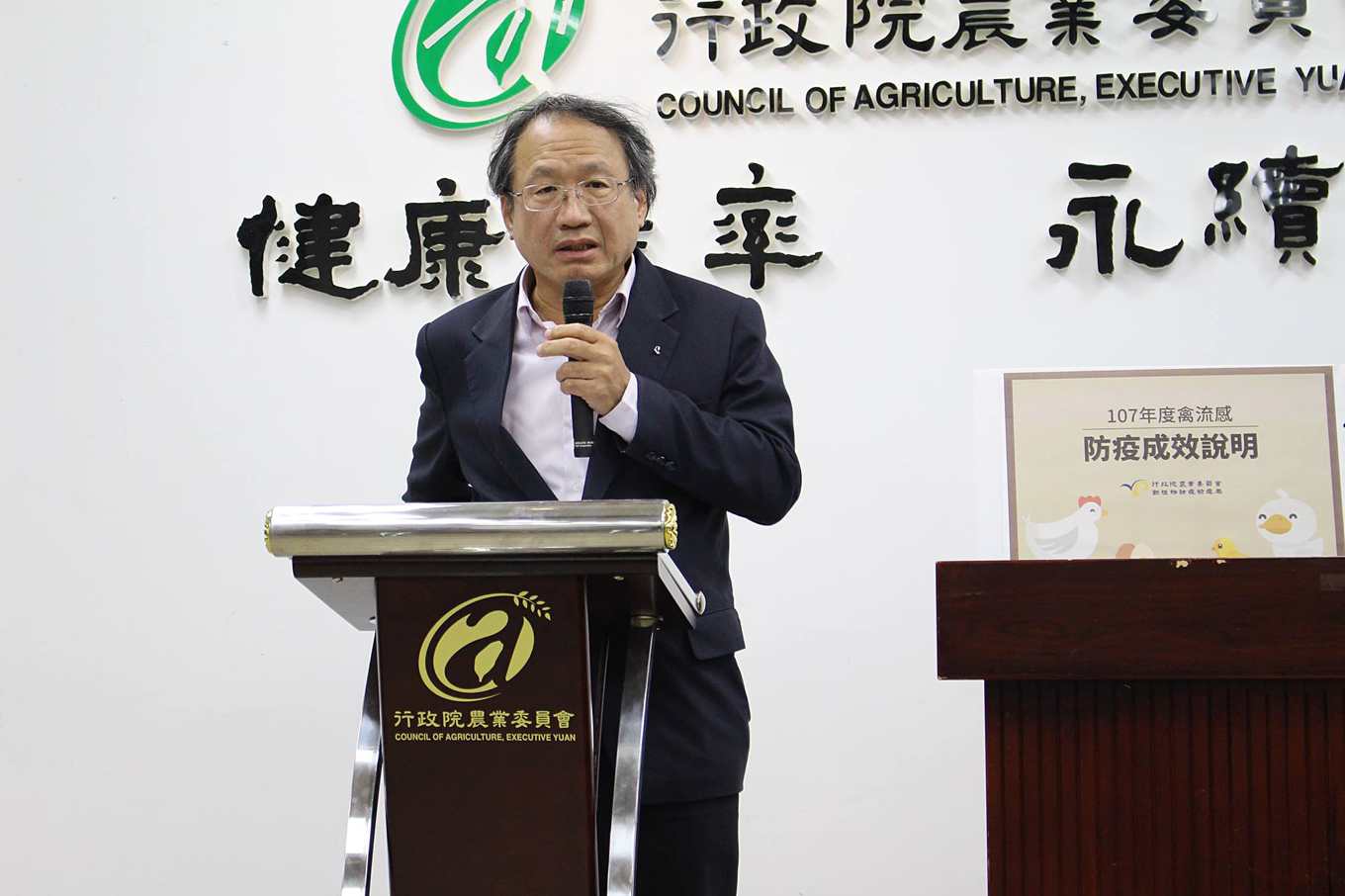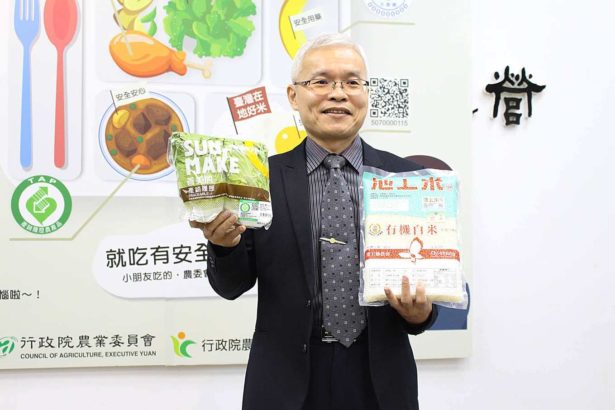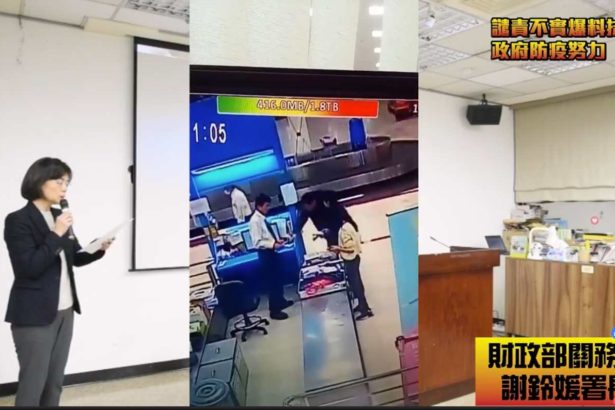Fight at the peak of bird flu in the cold winter! Mixed breeding of three generations of laying hens is the most difficult, and the open feeding of ducks should strengthen the control.
Share + 1 Tweet Email
Bird flu is prevalent in winter. It was only yesterday in Pingtung that a duck farm was found to be infected with H5N2 subtype highly pathogenic bird flu, and 6510 birds have been culled. In view of the effectiveness of bird flu epidemic prevention in the past two years, Huang Jincheng, vice chairman of the Council of Agriculture, said at a press conference today (23) that enhanced surveillance measures for bird flu have been implemented to increase the sampling frequency for ducks, native chickens, laying hens and breeder hens with higher risk. Although the avian influenza H5N2 virus still exists in the environment and has not been completely extinguished, "at least for now, it seems to be OK." There has been no more outbreak of H5N6 and H5N8 avian influenza virus infection this year, and the virus may no longer exist in the environment.
2018 the number of bird flu cases decreased by 46% compared with the year before last.
Jincheng pointed out that in 2015, there were 1004 outbreaks of bird flu, culling at least 5 million birds; in 2017, the number of outbreaks dropped to 182,98 in 2018, including 40 in land poultry farms, 46 in duck farms and 12 in goose farms, culling a total of 690801 poultry. The number of bird flu outbreaks has dropped by 46% compared with the previous year, showing that epidemic prevention measures have been effective. At present, Taiwan has eliminated H5N3, H5N8, H5N6 subtypes of highly pathogenic avian influenza virus, only H5N2 subtype, there is no risk of avian-to-human transmission.


Huang Jincheng, Vice Chairman of the Council of Agriculture (Photography / Liu Yixin)
Strengthen the control of high-risk areas. Ducks are susceptible to virus and need testing before they can be listed on the market.
The Avian Influenza Prevention and Control Center, through analysis and prediction of high-risk areas, focuses on about 18 townships in Changhua County, Yunlin County, Tainan City, Kaohsiung City, and Pingtung County, and the outbreak sites also revolve around high-risk areas, and the Council of Agriculture focuses on high-risk areas. The Council of Agriculture implemented intensive surveillance measures for bird flu in winter from December 1 last year to March 31 this year, strengthening 60 tests a month for native chickens listed in high potential risk areas.
This year, 360 samples will be taken from laying hens and all samples will be taken from breeder farms. It is expected that the concentration of avian influenza virus in the environment will be reduced and the outbreak field will be reduced. Jincheng said, "We hope to strengthen measures for several years in a row to minimize the epidemic, and then take different measures to gradually eliminate H5N2."
Golden City further pointed out that in the past, the rate of ducks containing virus was about 3%, because most of them were open farming, the infection rate of the virus was high, and the virus remained in the environment. "because of the high density of mixed culture of ducks, waterfowl and land birds, it is very difficult for us to control the virus." Therefore, before slaughtering ducks on the market, there must be a test certificate, and only if the virus is not detected can it be slaughtered. If the virus is detected, the whole market will be cleared. In this way, the ducks will be cleaned up with the original virus. Egg farms, breeder farms and goose farms have also stepped up sampling inspection to eliminate H5N6 and H5N8 in this mode.
Council of Agriculture: laying hens are the most difficult to deal with, and three generations of mixed viruses circulate in the environment.
However, Huang frankly admits that the egg farm is very difficult to deal with. "the most uncertain thing to deal with is the egg farm, because the virus has been circulating in the environment because of the mixed culture of old, middle-aged and young people." Of course, if the virus is still active, it will be culled; but if it is detected that the antibody is positive, it only means that it has been infected, not that there is a virus now. The positive rate of antibodies detected by laying hens is about 50-60%. "if the antibody is positive, then culling, a kilogram of eggs may rise from more than 40 yuan to 100 yuan."
The breeder farm antibody positive about 20-30%, the proportion is low, you can start from the breeder chicken farm clean. In addition, the reasons why it is difficult to remove H5N2 include that both attenuated and virulent strains exist in the environment, making it more difficult to prevent epidemic.
High-risk migratory birds inhabit wetlands and all samples are taken within a radius of 5 kilometers.
In view of the high-risk migratory bird habitat wetlands where avian influenza virus has been detected in recent years (Yilan tide wetland, Jiayi Aogu wetland, Kaohsiung eggplant wetland, Tainan Yantian and Sicao wetland, etc.), all poultry farms were sampled and tested within a radius of 5 kilometers. And the number of wetland samples has increased, which means that the virus is isolated from wild bird feces to find out whether migratory birds have brought other viruses to Taiwan, because H5N1, H5N6, H5N8 and other viruses still exist in the countries around Taiwan, which may be dangerous for birds to spread to humans.
To prevent and block African classical swine fever, 16 X-ray machines were added in February and all hand luggage was inspected.
In addition, in response to the African classical swine fever epidemic concerned by the outside world, Jincheng said that on February 2, Taoyuan Airport will set up 16 X-ray machines at the empty bridge to strengthen inspection for countries in high-risk areas and achieve the target of 100% inspection of hand luggage. And by the end of January this year, the EPA will complete more than 1,000 reuse checks on food waste pig farms. "all food waste pig farms must complete the inspection by the end of January, otherwise they must switch to feed or leave livestock."
Share + 1 Tweet Email
- Prev

The better the child eats, the more reward he will get! The Council of Agriculture encourages nutritious lunches to eat more organic and resume ingredients, and the subsidy is higher.
The better the child eats, the more reward he will get! The Council of Agriculture encourages nutritious lunches to eat more organic and resume ingredients, and the subsidy is higher.
- Next

Port quarantine officer releases water on prohibited meat? It's fake! The Agriculture Committee held a press conference late at night to condemn false revelations
Port quarantine officer releases water on prohibited meat? It's fake! The Agriculture Committee held a press conference late at night to condemn false revelations
Related
- A course of planting techniques and methods on how to grow carrots
- How to plant the latest tulips?
- Is it better to pick tea in the morning or in the afternoon? When is the best time for tea to be picked? what is the third or fifth tea?
- Launch Yuanxiao Happy combination Haocha + Tea Yuan healthy Taste
- Penghu Tourism "Fireworks 20 Parade with You"
- 2022 West Lake Happiness holds "Digital Revitalization Voucher" and draws iphone13 and laptop.
- Banqiao Fuzhou social houses are designed to change start-up combined with police elimination to create a safe and livable environment
- The convenient measure of "mechanical weeding" in Xinbei has been abused and the Agriculture Bureau has imposed heavy penalties on the illegal land consolidation.
- Changgeng University Joins Hands with Four Memory Factories to Rescue Memory Talent Shortage
- The list of Taiwan's top 100 MVP managers is listed by the Director-General of the Farmers' Association of Sanxia District.

